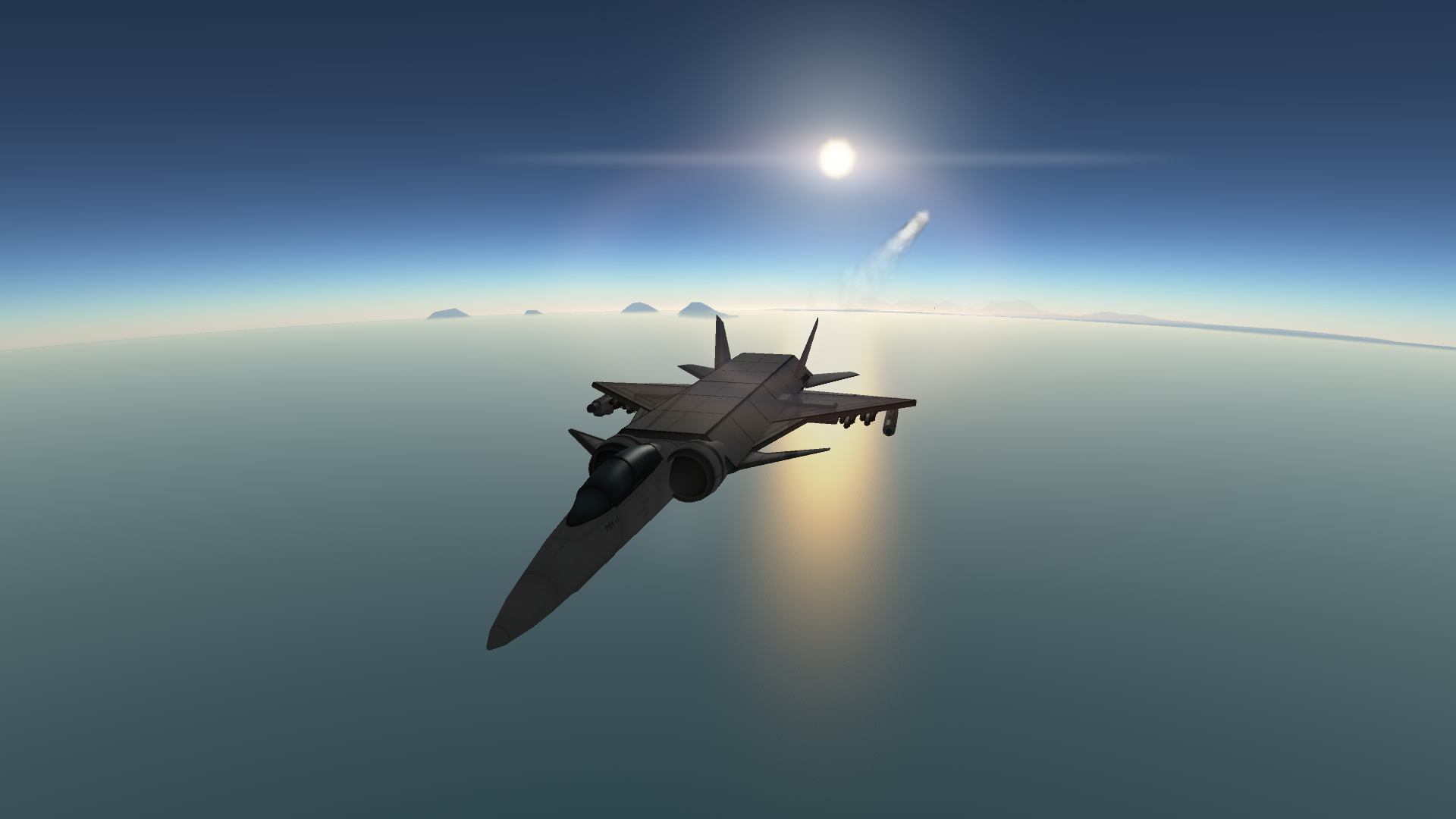EA-57: Difference between revisions
(overall grammar and capitalization fixes) |
Slavic blin (talk | contribs) mNo edit summary |
||
| (6 intermediate revisions by 2 users not shown) | |||
| Line 1: | Line 1: | ||
| + | |||
| − | == EA-57 == |
||
| − | {{ |
+ | {{Craft|title =EA-57|image =Kerbal Space Program 7 20 2019 10 30 19 PM.png|role = Light Bomber|national_origin = Nuvalkan Federation|manufacturer = Tsaregorodtsev Aviation|first_flight = 2096|introduction = 2097|operators = Nuvalkan Airforce|produced_from = 2096|number_built = 20}}the EA-57 was a light bomber produced by Tsar. Aviation in 2096 for the Air force of Nuvalka. |
== Design == |
== Design == |
||
| − | The design of the EA-57 had a 2 seat cockpit and a large cargo bay going down the fuselage, which would hold the payload. The major flaws |
+ | The design of the EA-57 had a 2 seat cockpit and a large cargo bay going down the fuselage, which would hold the payload. The major flaws to it's design were low agility and underpowered engines. The bomber was limited to missions in which enemy interceptors were negligable or nonexistant. |
| − | The plane could carry up to 4 cruise missiles in the cargo bay, and 12 Hellfire air to ground missiles on the wing pylons, along with other equipment such as radar jammers and FLIR targeting cameras. It was also tested to carry air to air missiles, but this was ultimately never used due to the poor |
+ | The plane could carry up to 4 cruise missiles in the cargo bay, and 12 Hellfire air to ground missiles on the wing pylons, along with other equipment such as radar jammers and FLIR targeting cameras. It was also tested to carry air to air missiles, but this was ultimately never used due to the poor air to air performance. The EA-57 was tested to have another engine, but the air-frame would have to be widened to accommodate 3 engines. |
| + | EA-57 Had a large payload capacity, however the low maneuverability and speed only allowed it to be used after air superiority was fully secured. |
||
| − | EA-57 could definitely pack a punch to most land forces if it could avoid being shot down by other aircraft. If it operates in Close Air Support, it can run amok and absolutely wreck any land vehicle it can get in its sights due to its large cargo capacity, effectively making it much better as an air to ground weapons platform than a light bomber. |
||
== History and Conflict == |
== History and Conflict == |
||
| − | The only conflict the EA-57 was involved in was Nuvalka's involvement in Wuste which would spark the Mushroom War later on. In this conflict, |
+ | The only conflict the EA-57 was involved in was Nuvalka's involvement in Wuste which would spark the Mushroom War later on. In this conflict, they deployed mushroom spores. As a result, none were taken down. Although they never saw real combat, they were used in Nuvalkan propaganda during the Mushroom War. Ten of the aircraft were kept after the war and seized by the Sahrland-Bastia commonwealth to restart Tsaregorodtsev Aviation. Eight were scrapped, with the last two being used as a testbed for experimental technologies. [[Category:Aircraft]] |
Latest revision as of 18:09, 25 May 2023
|
EA-57
|
|||||
|---|---|---|---|---|---|
 |
|||||
| Role | Light Bomber | ||||
| National Origin | {{{origin}}} | ||||
| Production History | |||||
| Service History | |||||
| Used By | Nuvalkan Airforce | ||||
the EA-57 was a light bomber produced by Tsar. Aviation in 2096 for the Air force of Nuvalka.
Design
The design of the EA-57 had a 2 seat cockpit and a large cargo bay going down the fuselage, which would hold the payload. The major flaws to it's design were low agility and underpowered engines. The bomber was limited to missions in which enemy interceptors were negligable or nonexistant.
The plane could carry up to 4 cruise missiles in the cargo bay, and 12 Hellfire air to ground missiles on the wing pylons, along with other equipment such as radar jammers and FLIR targeting cameras. It was also tested to carry air to air missiles, but this was ultimately never used due to the poor air to air performance. The EA-57 was tested to have another engine, but the air-frame would have to be widened to accommodate 3 engines.
EA-57 Had a large payload capacity, however the low maneuverability and speed only allowed it to be used after air superiority was fully secured.
History and Conflict
The only conflict the EA-57 was involved in was Nuvalka's involvement in Wuste which would spark the Mushroom War later on. In this conflict, they deployed mushroom spores. As a result, none were taken down. Although they never saw real combat, they were used in Nuvalkan propaganda during the Mushroom War. Ten of the aircraft were kept after the war and seized by the Sahrland-Bastia commonwealth to restart Tsaregorodtsev Aviation. Eight were scrapped, with the last two being used as a testbed for experimental technologies.